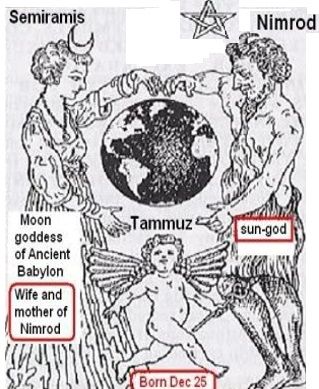Kelly of the Phoenix
Well-Known Member
I find that people who want, no, NEED that kind of attitude have identity issues and so they pick something amazingly shallow, like group name. They rarely if ever actually follow Jesus' teachings, preferring Paul or John or Moses. Supremacy of any sort is a result of feelings of inadequacy, deserved or otherwise. This is a conversation I wrote in a book that's not yet out (hopefully soon, waiting on the cover artist):Does your faith or worldview have a similar outlook to some evangelical Christians who view themselves as right and everyone else wrong?
“How practical,” El noted with a smirk.
“There are many ways, Lord of Canaan.”
El frowned momentarily. “We believe there is only one.”
Vishnu chuckled. “Have You ever read a map, Oh, El?” He asked playfully. “Do Your cities have only one way in or out? Even in the age of walled cities, were there not multiple gates? To limit Yourself to a single door means the fire will surely burn all inside. Before the war at Kurukshetra, the Pandavas were invited to stay in a house of wax with only one exit. Fortunately, they were warned that this was a trick and they dug a tunnel in the floor and escaped as the Kauravas, their cousins, let loose a volley of fire upon them. In this, We learn that multiple ways are best, even if one must crawl through the dirt to survive. Have We not heard the saying, ‘When God closes a door, He opens a window’?”
Limiting oneself to a single "truth" limits one's perspective on reality. No path thus far has been able to deal with every facet of life in this universe, at least, as far as I know, but that's my point: we can't know everything, so teaming up with people who are different is the only way (or not) to get a look at a bigger picture.
The eye cannot say to the hand, "I don't need you."
Yes, for all the hate Islam gets, it's almost like "submitting to God" is the most offensive part for others in the Abrahamic faiths. I'm sure there's some Freudian nonsense going on there.I think that is an aspect I greatly respect about Islam-Submission to the will of God.
It tells me their faith is as fragile as thin glass.Being inclusive is challenging to practice with people who hold exclusive beliefs. For example, they often won't even show up at interfaith gatherings.
I mean, God told ME to learn from others. It's been very helpful since my own upbringing has been revealed to be less than honest about how things work.A faith that does not realize the need to reach towards others and at least attempt to understand and communicate with them is not much of a faith, IMO.
Yes, the Way is what is important. The person talking about it is irrelevant.Sai Baba has been very clear in His discourses "Evangelizing is the cause the people become atheists". But to be clear, He also said that "God only asks of us to respect His Creation; so all paths are equally good choice to reach this, if one keeps the focus on the underlying Love & Respect principle".

